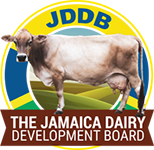Trade Board Limited
Provide technical support and advice in the area of trade policy, including but not limited to: market access, safeguards, dumping, rules of origin, tariffs, competition, technical barriers to trade, standards and accreditation; Conduct research as required to determine the trade policy strategies that maximize economic benefit to Jamaica; Coordinate consultations within the Ministry and its agencies to ensure that the Ministry’s positions are harmonised; Ensure that trade policies are clearly articulated and implemented in the formulation of plans, policies and programmes; Plays an integra

